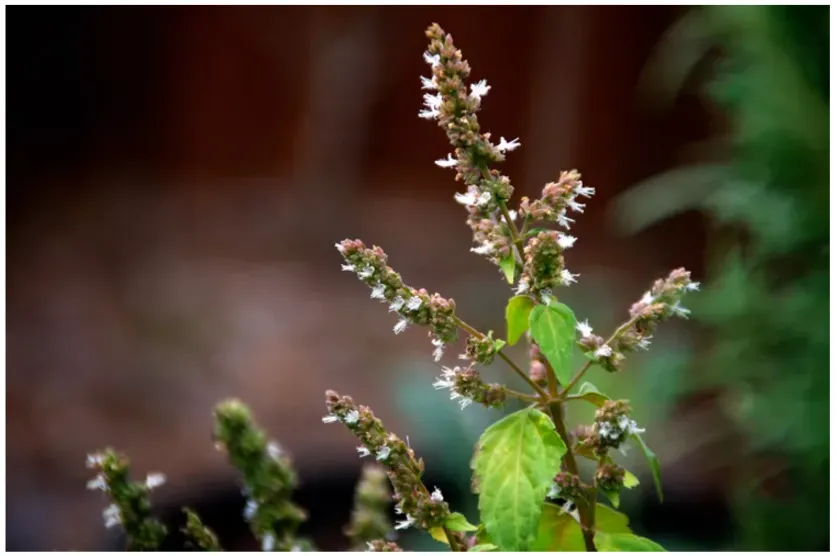
Review: Dream Moon by Pacifica
Everything you need to know about this best-selling perfume.

Patchouli is often described as having a deep, earthy, and musky aroma. It carries a rich, spicy-sweet scent that is sometimes associated with wet soil or a damp forest. Its complexity can also offer subtle hints of leather, smoke, and even a touch of green freshness.
Patchouli, or Pogostemon cablin, is a tropical plant native to Southeast Asia. Its name comes from the Tamil words “patchai” meaning green, and “ellai” meaning leaf. The plant produces small, pink-white flowers, but it’s the leaves that are harvested for their rich, aromatic oil. This essential oil, produced through steam distillation of the dried leaves, is what perfumers have been enamored with for centuries.

Defining the scent of patchouli is no small task, largely because it embodies a symphony of fragrant notes that seem to evolve over time. At first sniff, patchouli is deeply earthy and musky, reminiscent of a damp forest floor. This initial impression often carries undertones of wood and smoke, which add to its rich, grounding character.
As the scent unfolds, it reveals subtle hints of sweet fruitiness and a slightly spicy kick. Some even detect a mild chocolate or wine-like note hidden beneath the layers, a testament to patchouli’s incredible complexity.
Patchouli’s richness and depth make it a favorite base note in perfumery. It grounds other scents, provides longevity, and adds a layer of intrigue that invites you to lean in closer.
To truly understand patchouli, we must examine its scent more closely. A hallmark of patchouli’s aroma is its changeability. It is one of the few essential oils that improve with age, much like a fine wine. When first distilled, the scent of patchouli oil can be quite harsh and potent. However, as it ages, it transforms into a smooth, full-bodied, and richly complex fragrance. This maturation process can take several months to years, but the result is a multifaceted scent profile that has made patchouli a cornerstone of luxury perfumery.
At its core, patchouli is often described as dark, dirty, and earthy. Imagine wet soil after a heavy rain, or the smell of a damp forest floor, brimming with decaying leaves and wood. There’s an inherent wildness to patchouli, a raw, natural character that sets it apart from more conventional scents.
But beneath this earthiness lies a world of surprising contrasts. Depending on its age and the quality of the distillation, patchouli can reveal sweet, spicy, woody, and even balsamic facets. Some describe a dark sweetness, reminiscent of overripe fruit or aged wine. Others perceive a camphoraceous edge, providing a cooling counterpoint to the warm, heavy base. High-quality patchouli may also reveal a rich, creamy woodiness, similar to sandalwood but with a distinct green nuance.
Furthermore, patchouli has the unusual property of being both rich and fresh. Its profound depth and intensity give it a sense of opulence, while its green, leafy facets lend a refreshing quality. This dichotomy makes patchouli a fascinating player in fragrances, as it can both anchor a composition with its weight and invigorate it with its freshness.
Patchouli’s versatility makes it a perfumer’s dream. It serves as a perfect fixative, helping to enhance and prolong the life of other fragrance notes. At the same time, its multifaceted scent profile allows it to harmonize with a wide range of ingredients.
In oriental fragrances, patchouli is often paired with vanilla, amber, and resins to create lush, sensuous blends. The earthiness of patchouli provides a grounding counterpoint to the sweetness of these elements, while its spicy facets complement their warmth.
In chypre compositions, patchouli’s deep, mossy character makes it a natural fit. It blends beautifully with oakmoss, bergamot, and labdanum – the traditional backbone of chypre fragrances. Patchouli lends depth and richness to these compositions, enhancing their elegance and sophistication.
Patchouli also shines in woody and spicy blends. It enhances the earthiness of vetiver, the creaminess of sandalwood, and the smokiness of cedar. Its sweet-spicy facets can also match the fiery warmth of notes like cinnamon, clove, and pepper.
Finally, patchouli can add an intriguing twist to floral and citrus compositions. Its earthiness can ground the ethereal beauty of flowers, adding a sensual undercurrent to their delicate scent. Similarly, its depth and richness can balance the brightness of citrus notes, adding a layer of complexity to their fresh, zesty aroma.
Patchouli is indeed one of the most polarizing fragrances in the olfactory universe. Its rich, earthy scent profile is known for eliciting strong reactions. To some, the scent of patchouli is an exquisite sensory journey, a bewitching tapestry of earth, wood, spice, and sweet undertones that resonates with depth and complexity. However, for others, its intensity and distinctiveness can be overwhelming, with its dark earthiness and robust character considered too powerful or pungent. Patchouli’s association with the counterculture movement of the 1960s and 70s also lends it a particular reputation that can influence perceptions. This divisiveness contributes to patchouli’s mystique, making it a fragrance note that is as controversial as it is captivating. Regardless of individual preferences, there’s no denying that patchouli leaves a lasting impression, reinforcing its status as a truly iconic note in perfumery.
Patchouli is actually a unisex scent, meaning it can be enjoyed by both men and women. As a cornerstone of many fragrances, patchouli provides a rich, earthy base note that can add depth and complexity to a wide range of perfume compositions. It’s this versatility that makes it a favorite among perfume creators. The perception of it as a “male” or “female” scent is really subjective and depends greatly on the other notes present in the perfume, as well as personal preference. In modern perfumery, the concept of gender in scents is becoming increasingly blurred, with a focus on personal preference and individual interpretation.
People wear patchouli perfume for a variety a reasons. Some reasons may include:
Distinctive Aroma: Patchouli has a unique, rich, and earthy aroma that is unlike any other scent. It stands out in a crowd of fragrances, making it a preferred choice for those who like to wear something distinctive and memorable.
Versatility: Patchouli blends well with a variety of other notes, making it a versatile ingredient in many different types of perfumes. It can be paired with floral, woody, citrus, or spicy notes, offering a broad range of scent experiences.
Longevity: Patchouli is a base note, which means it has a high staying power. Perfumes with patchouli tend to last longer on the skin, making them a great choice for those seeking a long-lasting fragrance.
Nostalgia and Connection: Patchouli was a popular scent in the 60s and 70s, and for many people, it carries nostalgic associations with those times. It can also serve as a sensory connection to nature due to its earthy and woody profile.
Mood Enhancement: Some people find the scent of patchouli to be grounding and calming, potentially helping to reduce stress and enhance mood.
Unisex Appeal: As a unisex scent, patchouli can be worn by anyone, regardless of gender, adding to its appeal.
Remember, fragrance is a personal choice and different people may be drawn to patchouli for different reasons.
Patchouli’s unique scent and versatile nature have earned it a central role in many cultural and historical contexts. The plant has been cultivated in India and Southeast Asia for centuries, not only for its fragrance but also for its medicinal properties. In traditional Ayurvedic medicine, patchouli is used to treat skin conditions, headaches, colds, and stomach problems. It’s also used in incense and potpourri for its soothing and antiseptic properties.
In the 19th century, patchouli made its way to Europe along with imported fabrics from India. Silk traders packed their goods with dried patchouli leaves to protect them from moths. The distinctive scent became associated with the exotic luxury of these textiles, leading to patchouli’s adoption by European perfumers.
In the 1960s and 70s, patchouli became the scent of the counterculture, embraced by hippies who appreciated its natural, earthy character and its associations with Eastern spirituality. Patchouli oil was used not only as a perfume but also as a symbol of rebellion against mainstream culture and its synthetic, mass-produced fragrances.
Today, patchouli continues to be a major force in the fragrance world. It’s used in countless perfumes, from classic masterpieces to avant-garde creations. Despite its ubiquity, or perhaps because of it, patchouli remains a scent that inspires strong reactions, encapsulating the mystery and allure of the olfactory art.
To sum up, what does patchouli smell like? It’s a complex, multifaceted scent that’s earthy and dark, yet also sweet and fresh. It’s a scent that evolves, deepens, and improves with age. It’s a scent that elicits strong reactions, loved by many for its richness and depth, yet also controversial for its intensity and uniqueness.
Patchouli is a testament to the power of fragrance to evoke emotions, memories, and connections. It’s a scent that’s rooted in history and tradition, yet continues to inspire and innovate. Whether you’re a seasoned fragrance aficionado or a novice exploring the world of scent, encountering patchouli is a sensory experience that’s not to be missed.

Everything you need to know about this best-selling perfume.

Love the smell of coffee? And want to smell like it? You’ll love these perfumes!